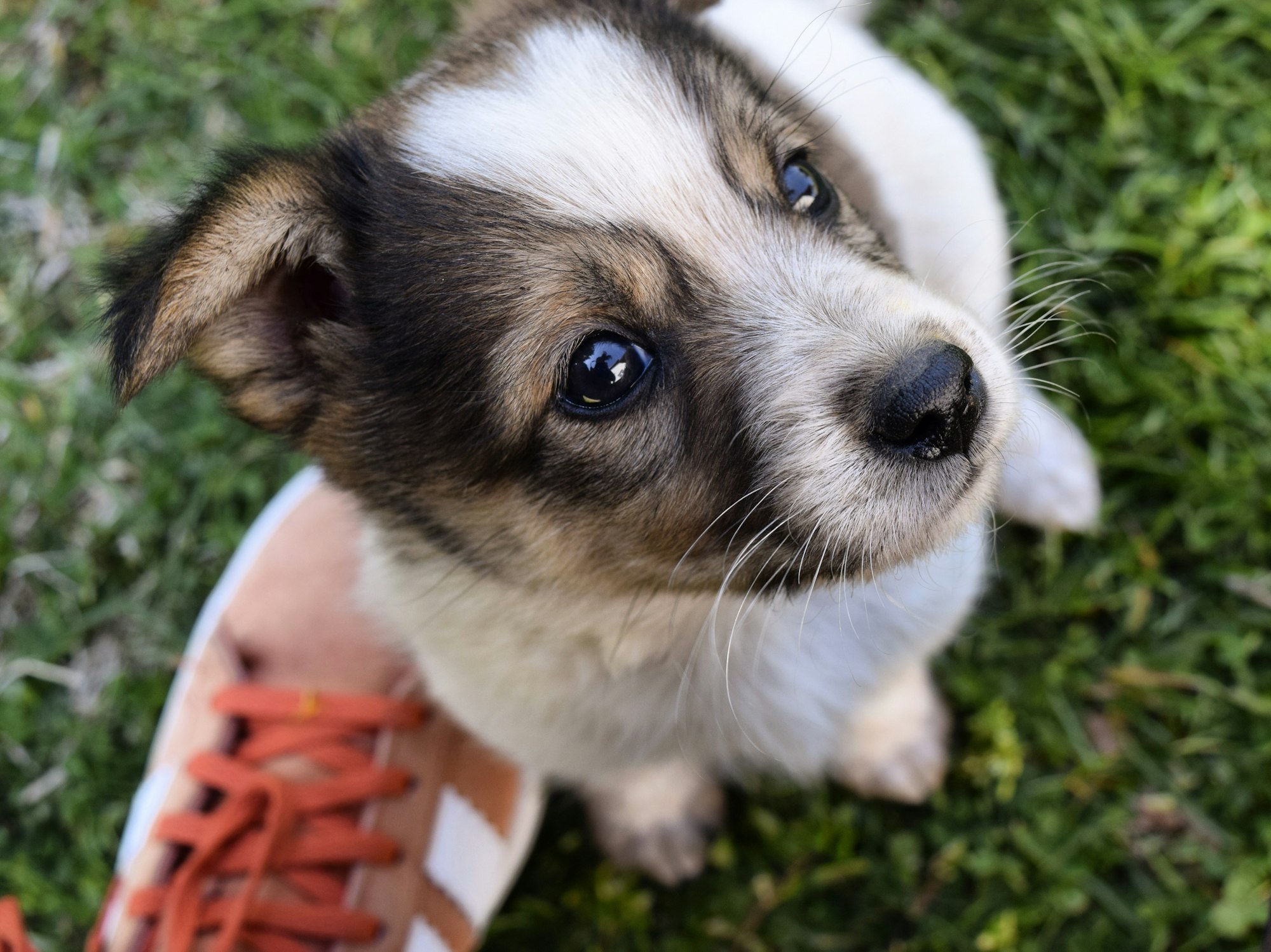Ever find your dog sniffing a lemon in the kitchen and wonder, "Can dogs eat lemons safely?" This thought might have crossed your mind when you've dropped a slice while making lemonade. So, let's dig into this matter.
Understanding Dogs and Their Love for Food
Dogs, by nature, are curious creatures. When you're cooking, they'll often be by your side, their noses in the air, sniffing the tantalizing aromas wafting from your stove. They are also known to gobble up food items you might least expect. If they can find it, they'll most likely try to eat it. But when it comes to their diet, not everything humans consume is suitable for dogs.

The Citrusy Debate: Are Lemons Safe for Dogs?
To answer the burning question – can dogs eat lemons safely – the simple answer is no. While it's true that some fruits like apples and bananas can be healthy treats for your furry friend, citrus fruits, including lemons, are not one of them.
Lemons, like all citrus fruits, contain a compound called psoralens. When ingested in large quantities, psoralens can cause issues such as vomiting, diarrhea, and in extreme cases, even dog death.
Moreover, the high acidity of lemons can cause digestive problems and can even lead to a sudden drop in the blood calcium levels of dogs, resulting in a condition known as hypocalcemia.
Real-Life Scenario: When Life Gives Your Dog Lemons
Let's take a real-life example to understand this better. Imagine you're having fun with your dog at the park, playing fetch with a ball. Suddenly, a lemon falls from a tree, and your dog, mistaking it for the ball, swallows it. This can be harmful and potentially life-threatening. If such a scenario occurs, it's best to contact your vet immediately.
Lemon Risks vs. Benefits: What's the Score?
While the risks of dogs eating lemons significantly outweigh the benefits, it doesn't mean there are no benefits at all. Small quantities of lemon juice can sometimes be used to enhance the flavor of dog food. It can also help remove the smell from their fur. However, these uses do not imply that dogs can eat lemons safely.
Rescue Dogs and Their Food Preferences
Interestingly, rescue dogs sometimes come with unusual food preferences due to their past experiences. If you've rescued a dog who has been living off scraps, they might try to eat a broader range of things, including lemons. It's essential to monitor their diet closely and discourage consumption of harmful food items like lemons.
Lemon Etiquette: Dogs and Dining Out
Speaking of discouraging certain food items, this brings us to an interesting topic - dog restaurant etiquette. If you love taking your furry friend with you to dog-friendly restaurants, you might wonder if it's okay for them to have a lick of your lemon-infused water. Given what we've learned about lemons and dogs, it's best to keep that lemon slice away from your canine companion.
Can Dogs Recognize Lemons?
Incredibly, dogs have a strong sense of smell. They can recognize faces - or, in this case, scents of various food items. So yes, your dog might recognize a lemon, especially if they've had an unpleasant experience with it before. But just because they recognize it doesn't mean they should eat it.
Lemon Toys: Fun but not Edible!
For those who love a good game of tug-of-war with their pooch, you might be familiar with how dogs shake their toys. This playful behavior can lead to interesting situations. Suppose you buy your dog a toy that looks like a lemon. They might shake it around, but remember to keep actual lemons out of their reach!
A Closer Look at Lemons and Dog Health
We've established that lemons aren't a recommended part of your dog's diet. But you might be asking, "What exactly happens if my dog eats a lemon?" It's a valid question, and understanding the answer can provide further insight into this citrusy conundrum.
When a dog consumes a lemon, the first thing they'll likely encounter is the fruit's strong, sour taste. While this might not be a major problem - aside from the potential for some comical doggy expressions - it's what comes next that's concerning.
The psoralens found in lemons and the fruit's high citric acid content can cause an array of digestive problems. These issues can range from mild discomfort and diarrhea to more severe conditions, like the aforementioned hypocalcemia.
How to React If Your Dog Eats a Lemon
Discovering your dog has eaten a lemon can be alarming. Knowing how to react is crucial. If you catch your dog in the act, it's advisable to remove any remaining lemon pieces from their reach and observe them closely for any signs of distress.
If your dog shows signs of discomfort - such as excessive drooling, vomiting, or loss of appetite - it's time to contact your vet. The earlier potential issues are addressed, the better the chances for a swift recovery.
Can Dogs Have Lemon Juice or Lemon Peel?
While we've focused on the lemon fruit's flesh so far, it's worth noting that other parts of the lemon - namely, the juice and the peel - are also harmful to dogs.
Lemon juice, just like the fruit itself, contains high levels of citric acid. Even though it might seem diluted, it can still cause the same issues if ingested by your dog. Lemon peel, on the other hand, is particularly high in oils and psoralens. It's actually even more dangerous than the fruit's flesh.

Promoting a Healthy Dog Diet
After understanding the effects of lemons on dogs, it's essential to consider how this knowledge impacts your approach to your dog's overall diet. Just as lemons can be harmful to dogs, so can many other human foods. It's important to familiarize yourself with what foods are safe and what should be avoided.
Lemony Lessons Learned
As we conclude, the takeaway from our lemony lesson is clear: while lemons are a healthy and refreshing fruit for humans, they aren't suitable for our canine companions. Understanding this not only ensures your dog's safety when it comes to lemons specifically but also underscores the importance of knowing what foods are safe for dogs more generally.
So remember, next time your dog gives those puppy eyes when you're enjoying a lemony treat, resist the temptation to share. Instead, opt for a dog-safe treat that will keep your furry friend both happy and healthy!
Introducing Fi Dog Collars: A Modern Solution to an Age-Old Problem
While we've covered a lot about the dietary needs and limitations of our furry friends, it's also worth addressing another key aspect of their health and safety: their physical whereabouts. In today's world, the importance of keeping track of your beloved pet cannot be understated. Here is where Fi dog collars come into the picture.
Fi Dog Collars and Lemon Dilemmas
Consider this scenario: You've learned that lemons aren't safe for your dog, and you're careful to keep them out of reach. But dogs can be mischievous and might find a way to access that forbidden fruit while you're not looking.
The Fi dog collar, equipped with GPS technology, allows you to monitor your pet's movements in real-time. You can keep an eye on Fido while you're preparing dinner, ensuring they aren't sneaking into the kitchen to investigate that lemon you just dropped.
Safety in a Collar: The Magic of Fi
The beauty of the Fi dog collar lies in its smart technology. Not only can it help you keep your pet away from lemons, but it can also be a lifesaver in various situations.
Let's say you and your furry friend are having fun with your dog in the park. Suddenly, a squirrel catches your dog's attention, and they dart off. With the Fi collar, you can easily track them, ensuring they don't get lost or stumble upon a lemon tree in their chase!
In cases of rescue dogs, who may have unconventional diets and exploratory habits due to their past experiences, the Fi dog collar can be an especially useful tool.
The Fi Collar: An Essential Tool for Dog Parents
By now, you understand that lemons aren't good for dogs. Armed with this knowledge, the Fi collar can serve as your right hand (or perhaps your right paw!). Monitoring your dog's movement, you can ensure they're not exploring areas where they might encounter harmful items like lemons or other unsafe foods.
Conclusion:
To wrap up, it's clear that while lemons might be healthy for humans, they're harmful to dogs, causing digestive issues and even severe conditions like hypocalcemia. While a dog's curiosity might drive them towards this citrus fruit, it's our responsibility as pet parents to keep them safe. This extends beyond dietary considerations, encompassing their overall safety using modern tools like Fi dog collars. In the end, understanding our furry friends' needs, coupled with using the right technology, can help us create a safe and enjoyable environment for them to live, play, and grow.
FAQs
- Q: Can dogs eat lemons safely?
A: No, dogs should not eat lemons. The citric acid and a compound called psoralens found in lemons can cause digestive issues and even severe conditions like hypocalcemia in dogs. - Q: What should I do if my dog eats a lemon?
A: If your dog eats a lemon, monitor them closely for any signs of discomfort such as excessive drooling, vomiting, or loss of appetite. If these symptoms occur, contact your vet immediately. - Q: Are all parts of the lemon harmful to dogs?
A: Yes, all parts of the lemon, including the peel and the juice, are harmful to dogs due to the presence of citric acid and psoralens. - Q: How can I prevent my dog from eating lemons?
A: Keep lemons out of your dog's reach and monitor them closely when lemons are around. Tools like Fi dog collars can also help track your pet's movement to ensure they don't encounter harmful items like lemons. - Q: Are other citrus fruits also harmful to dogs?
A: Yes, most citrus fruits contain citric acid and psoralens, which can be harmful to dogs when ingested in large quantities. - Q: How can Fi dog collars help keep my dog safe?
A: Fi dog collars, equipped with GPS technology, allow you to monitor your dog's movements in real-time. This can help ensure they aren't exploring areas where they might encounter harmful items like lemons. - Q: Are there any benefits of lemons for dogs?
A: While lemons themselves can be harmful to dogs, small quantities of lemon juice can sometimes be used to enhance the flavor of dog food or help remove smells from their fur. However, these uses do not imply that dogs can eat lemons safely.

